On the first Saturday of every month, a book is chosen as a starting point and linked to six other books to form a chain. Readers and bloggers are invited to join in by creating their own ‘chain’ leading from the selected book.
Kate: Books are my Favourite and Best
This month’s Six Degrees of Separation Challenge invites us to start with a favourite Lonely Planet travel guide. I rarely use physical guide books any more, but one old friend I won’t be parted from, even though I’m unlikely to travel there again is their guide to South India. This was my bible when, newly retired, I spent a month there, largely solo, in 2007. My travels there began my blogging career, though on a different platform.

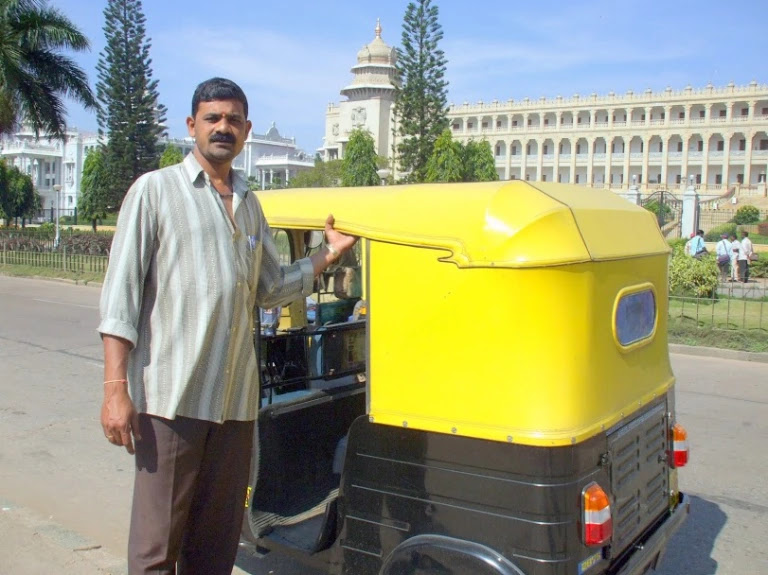
I’m taking an easy option for this month’s post. I’m whizzing us to six different countries or regions via a book set in each of them.


We’ll start not in Asia, but in Africa: Nigeria. Blessings, by Chukwuebuka Ibeh. Obiefuna is the elder son of a couple who had long waited for a child. He’s doing well at school, but isn’t the football-playing, loud and gregarious lad his parents expected. The arrival of a live-in apprentice arouses unexpected feelings in the boy, and his father catches them heading towards an intimate moment. We follow Obiefuna’s adolescence as he’s banished to a strict Christian seminary. We watch him grow into young adulthood where his homosexuality is always a source of shame, even danger in Nigeria’s deeply homophobic society. Obiefuna is a sensitively drawn and rounded character, whose future is uncertain as the novel ends. A compassionate, understated and beautifully written book.
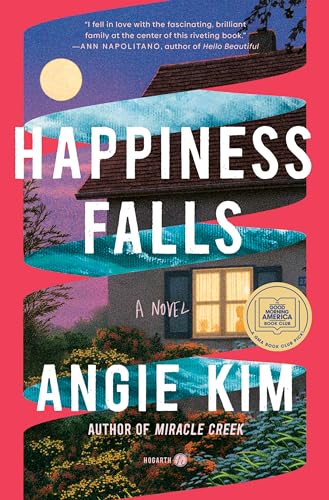

I’ve chosen Happiness Falls by Angie Kim, because this too has a young person as its main protagonist, but her family, besides being American, is also of South Korean heritage. This story, ‘narrated’ by Korean-American Mia is hard to categorise. A young adult, she lives with her parents, her twin brother John and her younger brother Eugene who is both autistic and a sufferer from a rare genetic disorder, Angelman syndrome which leaves him unable to communicate verbally, and with severe motor control difficulties. Mia is very bright, intense, prone to careful analysis and scattering her writing with footnotes. She recounts the family drama in which her father disappears while in the park with Eugene, who arrives home bloodied and distressed. What’s happened? It’s complex, high octane stuff. And while I probably wouldn’t survive for ten minutes in Mia’s company face to face, she’s an engaging, thoughtful narrator with a passion for forensic detail and analysis. Provocative, heartfelt, compelling.


Another book with a family drama at its heart is by the Swedish author Alex Schulman (transl. Rachel Wilson): Malma Station. This was a book I had to finish and stand back from before I could appreciate it. Three sets of people are on a train heading towards Malma. We begin to learn their stories. And we begin to realise that these three sets are not travelling at the same time – years separate them. Yet these sets- father-daughter; wife-husband; daughter are all related. And the story slowly unfolds of how damaged they each are, and how this damage has passed – multiplied even – from one generation to another. It’s a tough, emotional read, with unlikeable characters whom we slowly begin to understand.

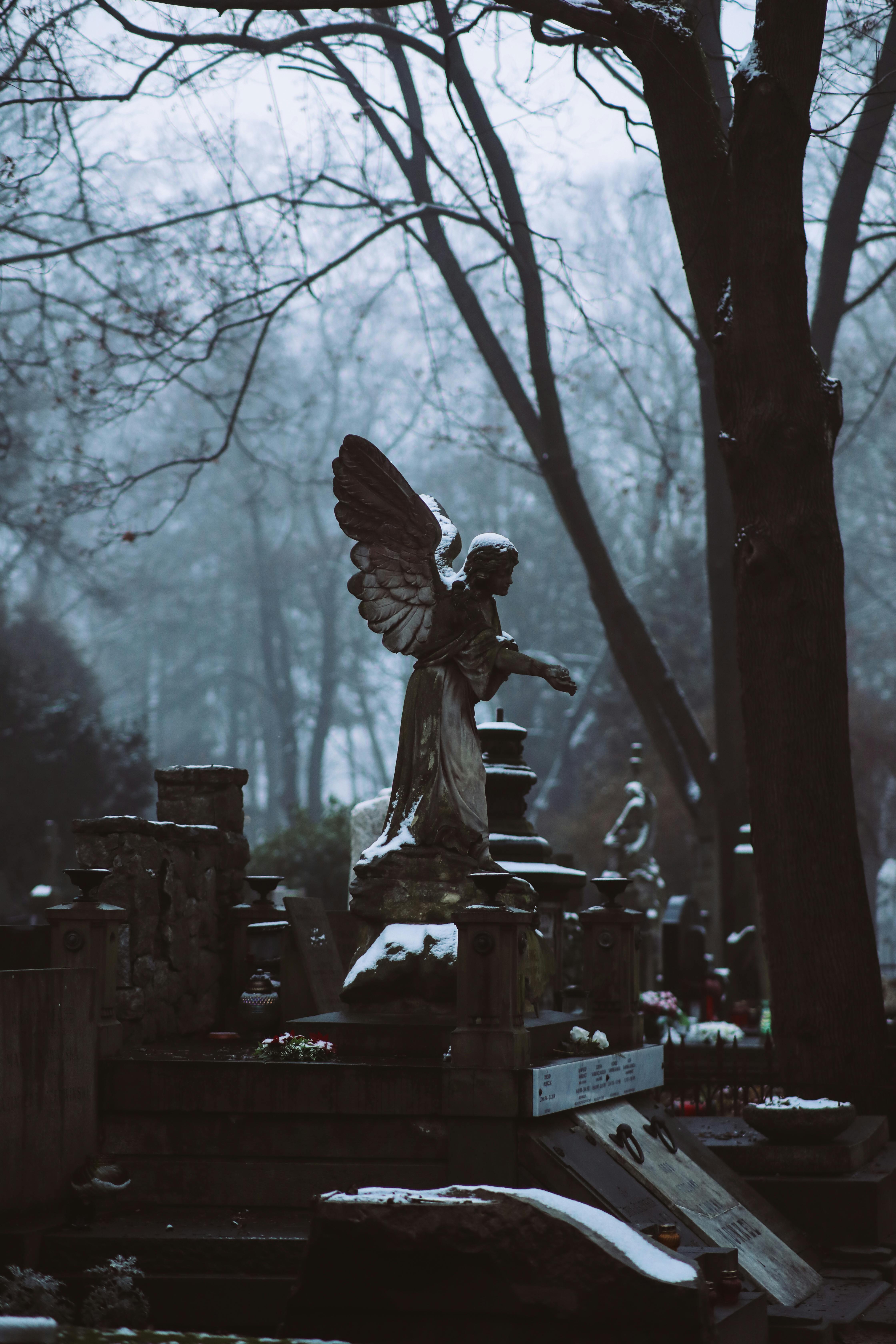
A story about a woman who’s a cemetery keeper in France – yes really – is a complicated family drama too. Fresh Water for Flowers, by Valérie Perrin (transl. Hildegarde Serle). Violette Toussaint had a childhood passed from foster-carer to foster-carer. Illiterate as a young adult, she taught herself to become a skilled reader. She married the sexiest man around, and had an unhappy marriage. The couple were level crossing keepers for many years, then they – and ultimately only she – became a cemetery keeper in the Bourgogne. It’s here that she gets over the tragedy that befell her, and finds friendship and meaning in life. There is a complex web of characters to become immersed in – or not. I think I’ll have to read it again, as I didn’t enjoy this book as much as its many devoted readers.


Now to another woman with a difficult life. Restless Dolly Maunder by Kate Grenville. Another work of fiction? Not quite. Dolly was born in the 1880s, at a time when women knew their place and had to stay there. But during Dolly’s life time, with two world wars forming part of it, things began to change. Enough to make her dissatisfied with her lot. But by sheer hard work and cussedness, she got herself and her husband on in life. It didn’t make her as easy person to get along with. Dolly was Kate’s grandmother, and this book is heavily based on the known facts of her life. An interesting exploration of the life of a woman during a period of huge evolution and change, written with sympathy and some understanding of a somewhat bitter, difficult individual.
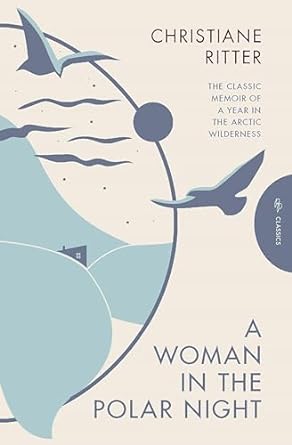

Finally, another story – a true one – of a woman with a difficult challenge. Austrian Christiane Ritter wrote an account of her year in the Arctic in A Woman in the Polar Night (transl. Jane Degras).In 1934, Ritter, a painter, left her ordinary life with a teenage daughter to join her husband in his life as trapper in Arctic Spitsbergen. It turns out to be as cold and inhospitable as we all imagine, and twice as primitive. Seals have to be caught and processed: birds too, and these fatty unfamiliar meats form much of their diet. Husband and Norwegian friend and housemate are often out trapping, looking for animals whose fur they will sell. That’s enough to tell you what much of this book is about. It’s tough in this unforgiving climate. But it’s beautiful too, and Ritter dwells on this. Straightforwardly yet engagingly written, this book offers an insight into the strange world which she chooses for a year to inhabit, and leaves reluctantly.
I wouldn’t presume to connect my experiences in India with Ritter’s in the Arctic, but being a woman travelling often alone is what links us. The advantage I had was in owning a guide book. The Lonely Planet Guide to the Arctic wasn’t available then.
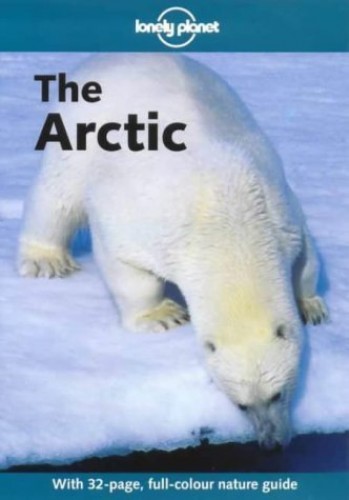
And next month? Our chain will begin with Stella Prize 2024’s long listed The Anniversary, by Stephanie Bishop.
All my illustrations this month, apart from the Indian photo, which is my own, come from Pexels. With thanks to the photographers Emmanuel Slope, Kindel Media, Koolshooters, Efrem Efre, Pat Whelen & Kristaps Ungurs.
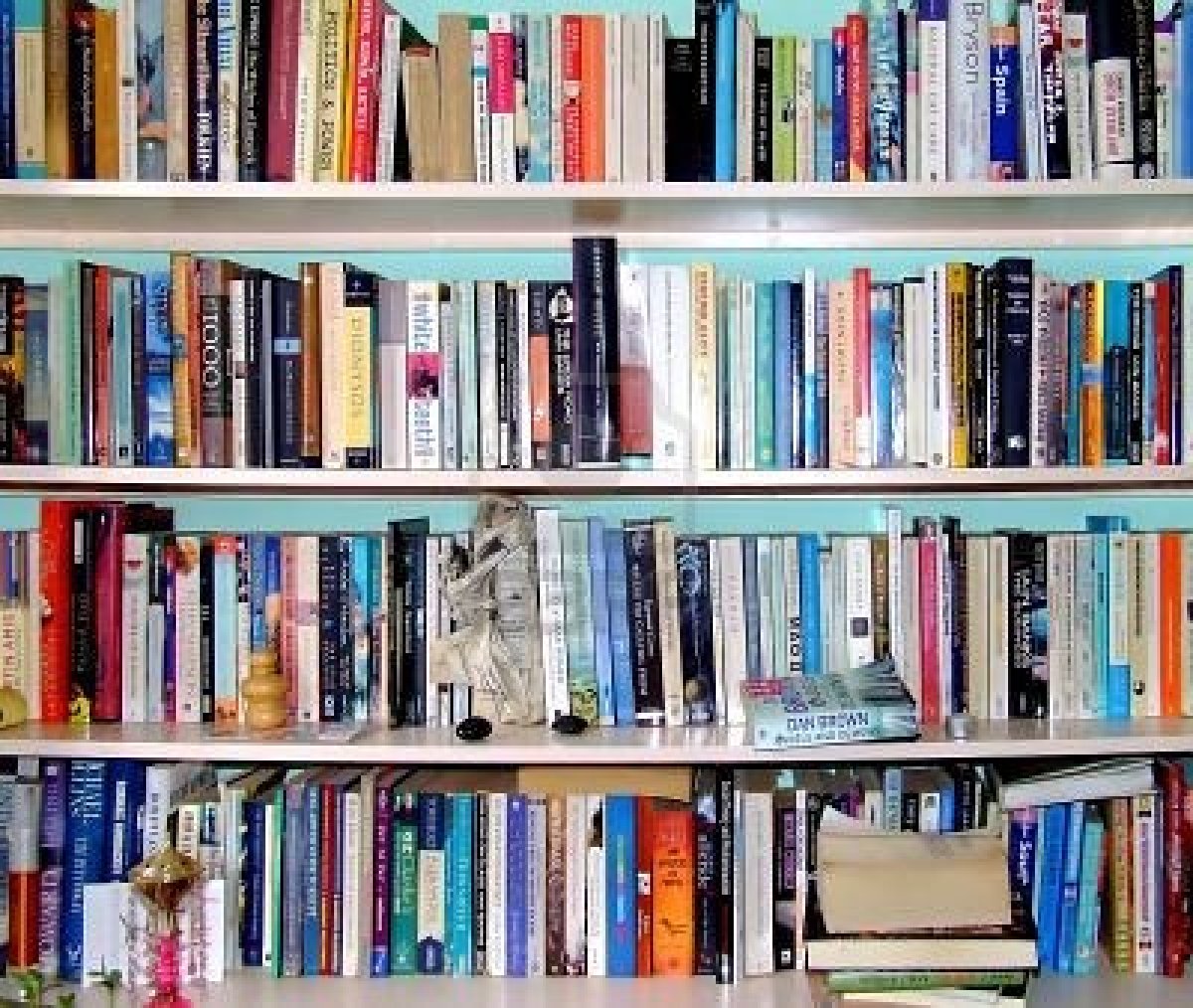
A very well travelled post, and what a great way to start your retirement. I was in a bookshop last week which had a nice little pile of the Ritter – an intrepid woman if ever there was one.
LikeLiked by 1 person
Quite! I found it unimaginable, but she painted the scene very well.
LikeLiked by 1 person
What a terrific and diverse collection of books!
LikeLiked by 1 person
Thanks. I really liked this month’s challenge.
LikeLiked by 1 person
I’ve ordered ‘Malma Station’ and ‘Blessings’ from the library.
LikeLiked by 1 person
Both are well worth reading – for me, Blessings especially.
LikeLike
oh my goodness, there are some reads as well as some travels. However I am (or rather my new housemate aka Mum) is definitely going to follow up on some of your recommendations 🙂
LikeLiked by 1 person
Excellent! There were some winners here, I thought.
LikeLiked by 1 person
You do read some interesting books, Margaret. I wouldn’t be sorry for any of those to turn up on my shelves. Well, probably not the last one and the Lonely Planet would have me desperate to pack my bags. Happy weekend! 🫠🩵
LikeLiked by 1 person
You too! I hope your lunch party was fun. I was sorry not to join you, but we were also having a different kind of fun.
LikeLike
It was nice to catch up with Ann and Bill. After 1.00 when we got home this morning. The washer is on 🤣💙
LikeLike
A great chain. Not sure I’d be brave enough to do a solo travel trip like that. Haven’t read any of yours but I really like the sound of Fresh Water for Flowers.
LikeLiked by 1 person
It wasn’t brave to travel solo – just selfish. I utterly pleased myself. And Fresh Water for Flowers is a book I’m going to give another chance to. I’m persuaded that for me, it was just the wrong time.
LikeLiked by 1 person
Great chain, Margaret. I don’t actually own any Lonely Planet books any more, so I had to be more creative with my starting book! Fresh Water for Flowers sounds interesting – I’m sorry you didn’t enjoy it very much.
LikeLiked by 1 person
My reading group loved Fresh Water for Flowers. I’m persuaded to give it another go. Yes, I think few of us buy guide books any more.
LikeLike
Such an interesting chain! I’ve read two of these books, Fresh Water for Flowers, which I loved and Restless Dolly Maunder, - she definitely had a difficult life!
LikeLiked by 1 person
Didn’t she just, poor Dolly Maunder? I may give Fresh Water for Flowers another go. I think I got off on the wrong foot with it.
LikeLike
Great chain. I did something similar with mine this time.
LikeLiked by 1 person
You did! Great minds 😉
LikeLiked by 1 person
A very enjoyable chain; I especially liked that your starting point is South India as I was born in Bangalore 🙂 Malma Station looks very good; I have the Ritter on my review pile and I realise it won’t be easy reading for me.
LikeLiked by 1 person
Born in Bangalore eh? I should have had you around to help me learn to cross the roads there! I hope you don’t find the Ritter too hard going. Or Malma Station if it comes to that.
LikeLiked by 1 person
Ha ha ha; well it was long long ago when traffic wasn’t quite as bad–and we were on a institute campus, safely away from the city centre. These days the traffic is maddening even for us to handle–at least when my parents last travelled, that was what they felt 🙂
LikeLiked by 1 person
I was terrified! But as you see, I survived.
LikeLike
Fascinating chain and filled with temptations as usual. I have the Ritter here and keep meaning to make a start. Hopefully soon.
LikeLiked by 1 person
Do read the Ritter. I really enjoyed it. Not enough to want to emulate her, mind!
LikeLiked by 1 person
Great chain, Margaret, it is fun to travel via books. I too solo traveled in India. I went there for a wedding (amazing experience) and my friend who got married was quite concerned having me whiz around the country on my own. It was fine, though.
Ah, I never got to Happiness Falls, because I didn’t get on with the audiobook narrator. I really enjoyed her previous book, Miracle Creek.
LikeLiked by 1 person
As to your the first part of your comment – I really enjoy solo travel. The opportunity to please only oneself has a lot to recommend it. And you pinpoint exactly why I don’t often use audio books. The reader rarely reads the book as I would have liked. I’m hard to please.
LikeLiked by 1 person
As always I find reading inspiration here! Happiness Falls and A Woman in the Polar Night are definitely going on my reading list 🙂 By pure coincidence Angelman syndrome (which I’d never heard of until today) was just mentioned on the lunchtime news, as they had a piece about unpaid carers and featured a mother of a child with that.
LikeLiked by 1 person
I still only know about this syndrome via the book. Your picks seem good choices for you. Enjoy!
LikeLiked by 1 person
A most diverse collection, Margaret, but some sound a bit difficult…
LikeLiked by 1 person
Oh! No, all were involving reads in their own way, even if difficult things happened.
LikeLiked by 1 person
Well done! I’ve only heard of Blessings, so this was even more fascinating.
LikeLiked by 1 person
There are way too many books for us to hear of anything like all of them. Six Degrees definitely helps.
LikeLiked by 1 person
Lovely!
I love traveling through books.
Here is my chain:
https://wordsandpeace.com/2024/04/06/six-degrees-of-separation-from-france-to-america
LikeLiked by 1 person
So do I. And I’ll be looking at your chain any minute now. Looking forward to it!
LikeLike
I’d love to see what places are recommended in the Arctic.
LikeLiked by 1 person
Yes, we ought to source a copy and look, shouldn’t we?
LikeLiked by 1 person
It’s not at my library, alas, but I did rediscover “The Right to be Cold” by Sheila Watt-Cloutier.
LikeLiked by 1 person
That sounds an interesting one – thanks.
LikeLiked by 1 person
I have visited Svalbard and would love to read this book. Thank you for the reviews.
LikeLiked by 1 person
Oh, do read it, whilst giving thanks for Gore-tex and all other accoutrements taken for granted by the modern traveller!
LikeLike
I only own one Lonely Planet guide, and I didn’t really use it when I was travelling. It is just so easy to use other means to plan
I enjoyed your chain this month!
LikeLiked by 1 person
You’re right: we’re all magpies these days when it comes to planning trips. But once upon a time, a good travel guide was pretty much essential. And thank you!
LikeLike
Travelling in India can be challenging but I can’t imagine doing it solo. One of my team members in work came from Kerala and she was always trying to get me to visit – sadly I couldn’t fit it into any of my trips. It’s on the list though for the future because it does sound beautiful
LikeLike
What an amazing journey through your books. This is quite a challenge and you rise to it with so many amazing books. What a wonderful trip too. I have a definite preference and love of the South of India. Somehow ‘softer’ than the north!
LikeLiked by 1 person
I haven’t visited the north, and am now unlikely to. But I chose the south simply because, as you say, it sounded ‘softer’ somehow.
LikeLiked by 1 person
I like books like Malma Station, but I think they are wrong. If every generation carries the scars of the previous one, then maybe we would all be carrying scars of seeing brothers or sisters being eaten by saber tooth tigers or something. I think in reality children (and adults to a lesser extent) are resilient, and, under reasonable circumstances, figure out how to deal with trauma.
LikeLiked by 1 person
I agree. We all have to overcome something nasty that happened somewhere along the line, or the human race would have sunk without trace.
LikeLiked by 1 person
Excellent book selections, Margaret! Reviews are very well written. Stories about women’s struggles are difficult to read.
LikeLiked by 1 person
Aren’t they just? But difficult experiences often seem to produce good writing. Thanks Amy.
LikeLike
You book reviews remind the book I read a few years ago, Educated: A Memoir.
LikeLiked by 1 person
Ah, I read that one too. Extraordinary, isn’t it?
LikeLike